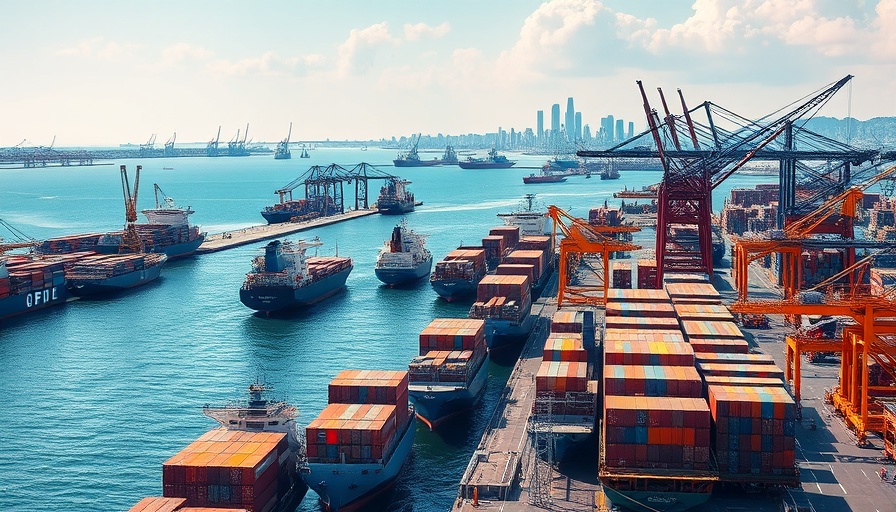
US Farm Groups Raise Alarm Over Proposed Port Fees
In a contentious hearing on Wednesday in Washington, executives from various agricultural and energy sectors voiced sharp opposition to President Trump’s administration plan to levy hefty fees on ships linked to China. The proposed fees, which could exceed $3 million per port visit, aim to curb China's dominance on the seas while promoting domestic shipbuilding. However, many industry representatives argue that this approach may inadvertently jeopardize American exports and economically burden consumers.
Potential Impact on Exports and Consumers
A significant concern raised during the hearing is the projected detrimental effects the port fees would have on items critical to the U.S. economy, especially soybeans and other agricultural products. According to a study by Trade Partnership Worldwide, exports of U.S. oil could fall by up to 18.6%, while coal exports might suffer a decrease of 24.5%. The farming sector, which forms the backbone of rural economies, would feel the pressure even more acutely, with soybean exports potentially plummeting by 42.2% and wheat by as much as 64.4%.
Industry Voices Against the Fees
Among the most vocal opponents was Gregory Kravitz from the Oxbow oil and gas company. He highlighted the paradox that these port fees would do little to deter China but would instead harm American businesses and workers, ultimately undermining broader governmental objectives to revitalize local industries. This sentiment was echoed by Aaron Padilla of the American Petroleum Institute, who warned that increased shipping costs might threaten the U.S.'s status as a net energy exporter.
Concerns Over Supply Chain and Costs
The proposed fees are already influencing shipping dynamics, with reports indicating a 40% increase in bulk shipping costs for essential agricultural exports, as mentioned by United Grain Corp. Additionally, global shipping leaders like MSC have hinted at reducing U.S. port calls, raising concerns about re-emerging supply chain delays reminiscent of the early pandemic era. Jared Gale from Dole Plc cautioned that higher port fees may either inflate the cost of bananas, the U.S.'s most consumed fruit, or make them too costly for importers.
The Call for Revision and Support
To mitigate the adverse effects of these proposed fees, industry stakeholders are urging the U.S. Trade Representative to consider phased-in charges or exemptions, particularly as domestic shipbuilding struggles to ramp up against China’s production scale. As the conflict over these port fees unfolds, professionals in agriculture and shipping will need to focus on adaptive strategies to navigate these economic challenges.
 Add Row
Add Row  Add Element
Add Element 



 Add Row
Add Row  Add
Add 
Write A Comment